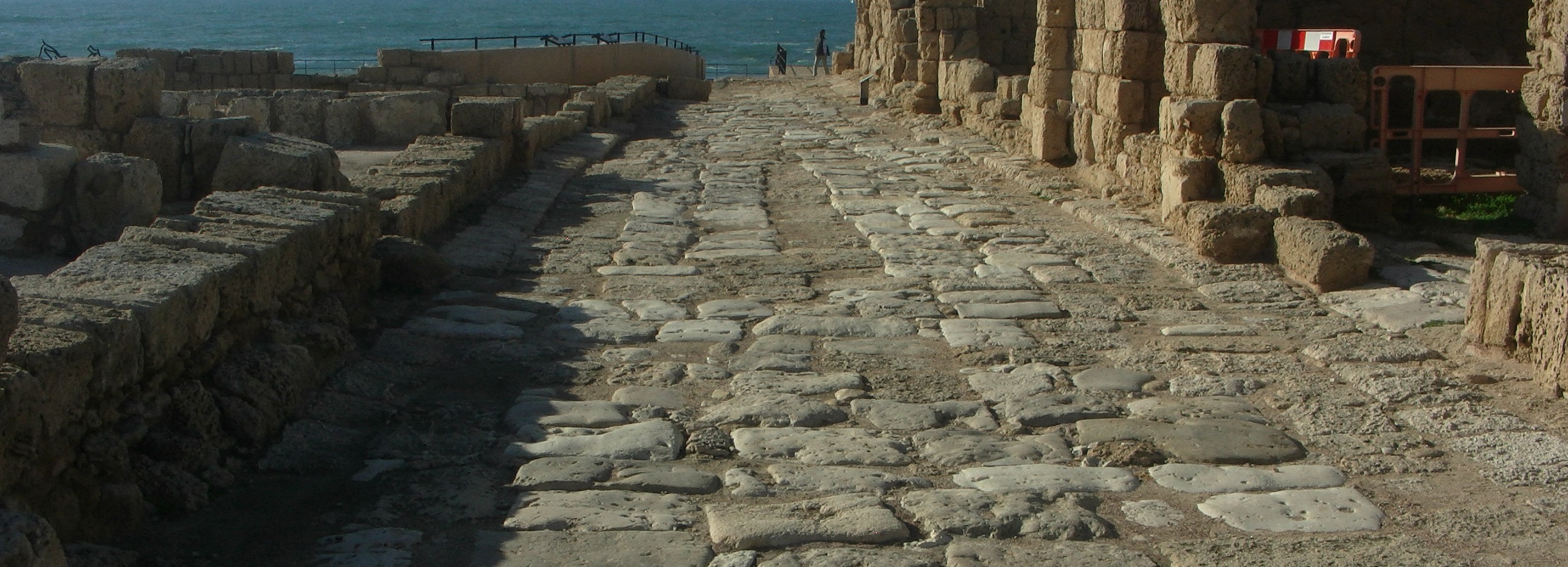
22.3K
Downloads
322
Episodes
The study of the Bible in its historical context - with a focus on the archaeology, history, geography, customs , culture, and even the languages of the ancient Middle East. WE ask what did they understand THEN - the original intent of the Lord - so that we can expand and enrich our understanding NOW and thus become true disciples of Adonai Yeshua as in John 8:31-32.
Episodes
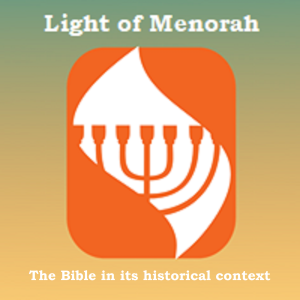
Saturday Apr 06, 2024
SABBATH - Lesson 1 Part 1
Saturday Apr 06, 2024
Saturday Apr 06, 2024
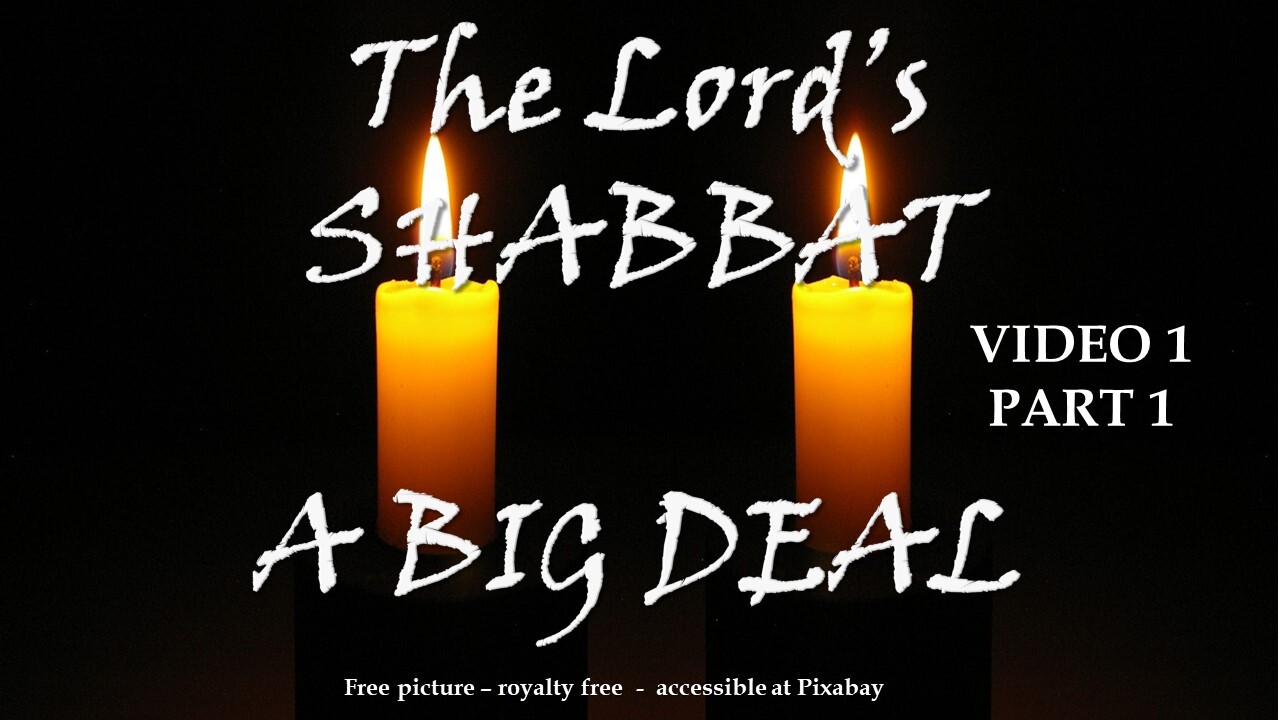
SABBATH SERIES - VIDEO 1 PART 1
Do you do the Sabbath? It is one of the Ten Commandments, so you'd better. But, do you do it on Sunday? Or, do you do it on Saturday where some might say it is the "Jewish" Sabbath? Who is right? In this video we will not debate whether the Sabbath is Sunday or Saturday. This debate has been going on for 1000's of years and I don't think I can end the debate with a short 30 minute or 60 minute video.
However, what is the Sabbath? What do you think the Sabbath is? Is it simply when you go to church? Oh no, you say, it is about church and resting, right? God said we are to rest. So why do it on Saturday or even Sunday? "Why can't I have a day of rest when I want?," some might say. But, what if He never said to rest? What if He meant something else? What's the 7th day have to do about it? Is that all it's about - going to church and, perhaps, taking a nap? Or is there something bigger that God is having us understand and practice? I suggest to you that the Sabbath - שָׁבַת Shabbat in Hebrew - is much much bigger.
Both groups, ones who practice שָׁבַת Shabbat on Saturday and those who practice שָׁבַת Shabbat on Sunday, are not being taught what this feast of the Lord actually is. This is my experience after growing up in Sunday churches and later attending Messianic congregations. No one is teaching the awesomeness of this feast, this "appointed time" of יהוה Yahvay, the Lord. Yes, it is a feast of the Lord by the very words of God. Don't believe me, you can read it for your self in Lev. 23:1-3 and you'll notice that the Sabbath is 1st in the list. There are 8 festivals of the Lord - they are not Jewish feasts. They belong to the Lord.
So, come. Join us. Study what you've been missing. Come and let the Lord help us understand the awesome of His שָׁבַת Shabbat so that He can enhance our walk of faith with המשיח ישוע, HaMaschiach Yeshua, Jesus the Messiah, Jesus the Christ. Let's us return to our first love. Sing along with us, "Ahshuv Ahlecka - Coming Back to You." Link - https://www.youtube.com/watch?v=ZoMT2fqnQyM
Rev. Ferret - who is this guy? What's his background? Why should I listen to him? Check his background at this link - https://www.dropbox.com/s/ortnret3oxcicu4/BackgrndTeacher%20mar%2025%202020.pdf?dl=0

Thursday Apr 04, 2024
Genesis - 92 - The Saga of Joseph - Gen. 41
Thursday Apr 04, 2024
Thursday Apr 04, 2024
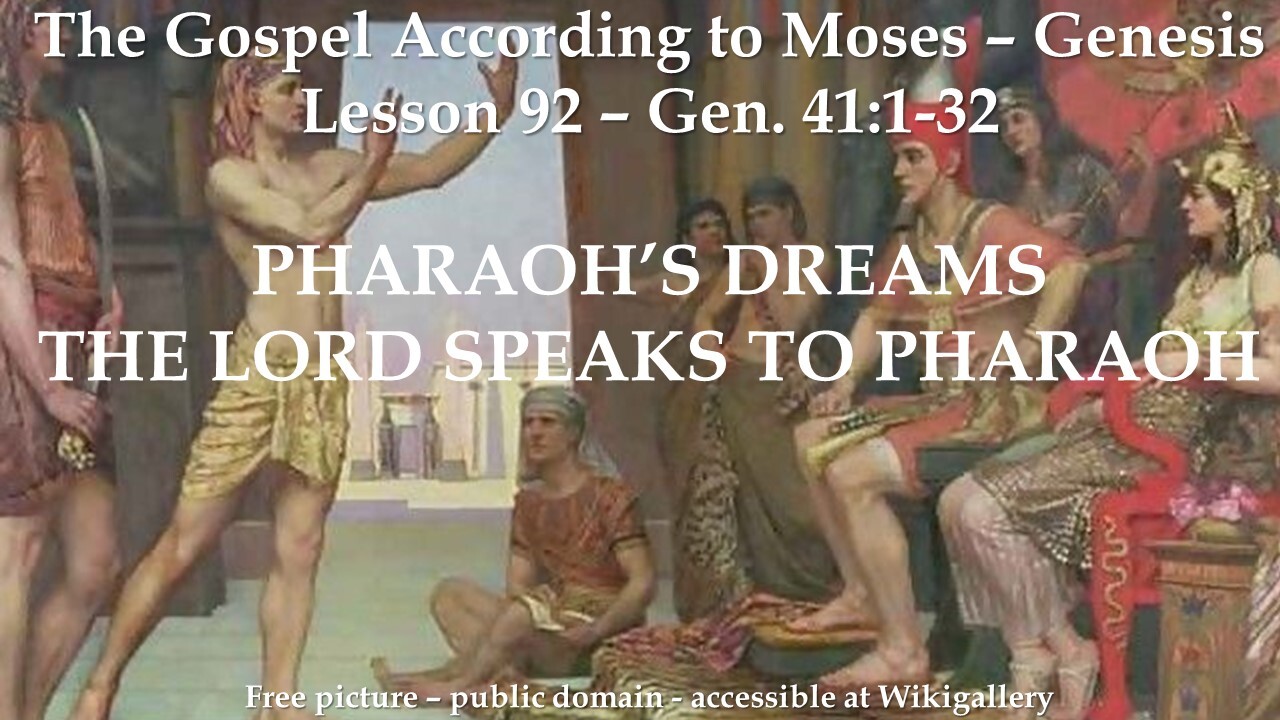
THE STORY OF JOSEPH - lesson 10
GOD BRINGS ORDER AND CHAOS
HE IS THE ALL POWERFUL ONE WHO IS GOD ALONE
In this lesson Joseph's life is shown to be clearly in the hands of the Lord. The Pharaoh has dreams and through a series of circumstances the cup bearer of Pharaoh (probably his butler or the manager of food and beverages and banquets) remembers what happened to him in jail. He remembered the Hebrew young man who interpreted his dream and the dream of the baker. The message from the Lord is clear ...
1) He had a plan for Joseph's life and the Lord knew it meant some tough times for Joseph ...
2) This carries into the life of Jesus as well. We know that the saga of Joseph is a paradigm, a model, a prototype of Jesus. They are both saviors of the world through BREAD. For Joseph is was the bread from the earth and for Jesus is was Himself, the bread from heaven. So too for Jesus, the Father had a plan for His son's life as well and nothing could stop the plan or interfere with its results, the salvation of Jew and Gentile for those in Yeshua HaMaschiach. Just consider ...
Eph 1:3-5 Praise be to the God and Father of our Lord Jesus Christ, who has blessed us in the heavenly realms with every spiritual blessing in Christ. For he chose us in him before the creation of the world to be holy and blameless in his sight. In love he predestined us to be adopted as his sons through Jesus Christ, in accordance with his pleasure and will.
1Pe 1:18-20 For you know that it was not with perishable things such as silver or gold that you were redeemed from the empty way of life handed down to you from your forefathers, but with the precious blood of Christ, a lamb without blemish or defect. He was chosen before the creation of the world, but was revealed in these last times for your sake.
3) But this is true for us today in the 21st century. God tells us again and again He never changes as we read in Mal. 3:6. And if we are true disciples of Adonai Yeshua, if we truly want to live our lives as the image of the Messiah in all we say and do, then, as the Father had a plan for Yeshua so too for us who are to be like Him.
Once again here is a great video that introduces us to this amazing connection between Joseph and Jesus. What is so awesome is God inspired Moses to write about Joseph 3400 years ago. Little did Moses know how his writing would help us today to see how God predicted His ultimate SAVIOR OF THE WORLD from the story of Joseph as the prototype. Here's the link to the video - https://www.youtube.com/watch?v=QQKadh0fVCo
Also, here's link to an awesome website, "Hebrew4Christians." I linked you to the pages at this website that also give even more awesome connections between Yosef and Yeshua.
Link - https://hebrew4christians.com/Articles/Mashiach_ben_Yosef/mashiach_ben_yosef.html
Rev. Ferret - who is this guy? What's his background? Why should I listen to him? Check his background at this link - https://www.dropbox.com/s/ortnret3oxcicu4/BackgrndTeacher%20mar%2025%202020.pdf?dl=0

Monday Apr 01, 2024
Shavuot (Pentecost) 1 - Psalm 67 and the Countdown
Monday Apr 01, 2024
Monday Apr 01, 2024
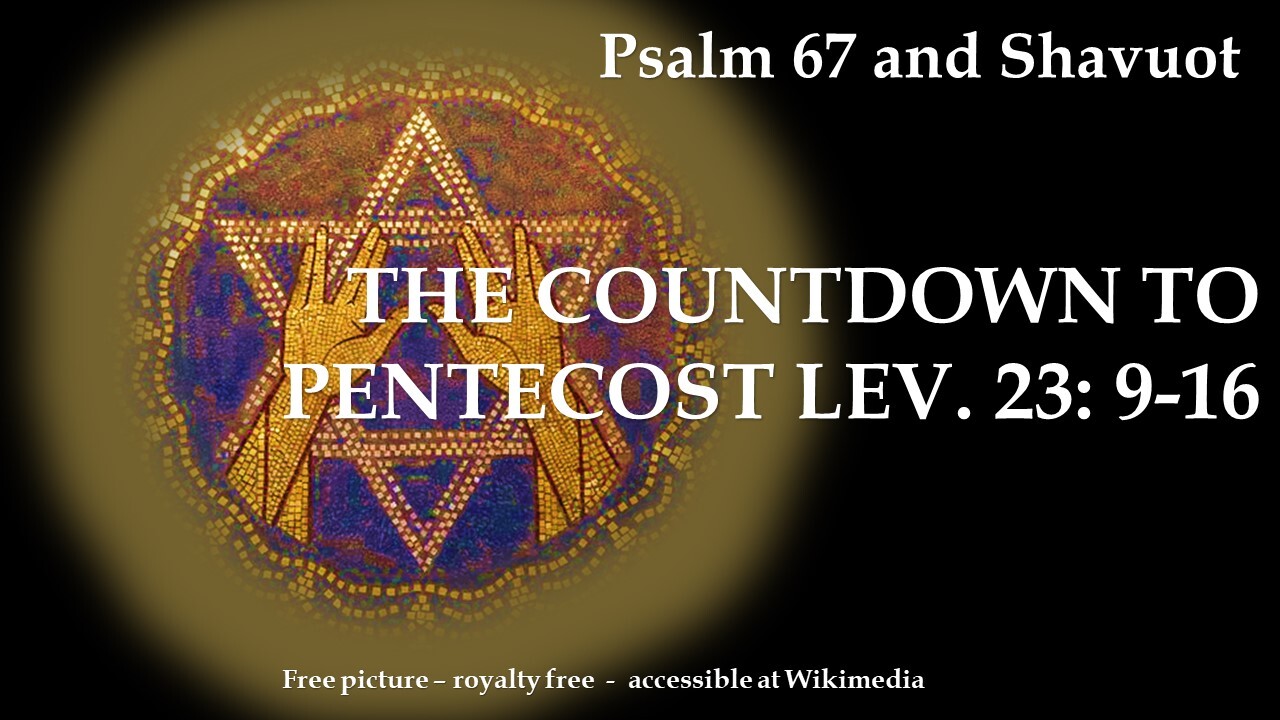
SHAVUOT - EPISODE 1
So few Christians really understand that there is a God ordained connection between Passover and Pentecost, between פֶּסַח Paysak and שָׁבוּעוֹת Shavuot. So few churches today even celebrate Pentecost. We have lost so much, we have become so disconnected from our roots, שׁוֹרָשִׁים SHORASHEEM.
One connection between Passover and Pentecost is "geographical." Passover is the time of the barley harvest. Pentecost is the time of the wheat harvest. Two harvests and both times the Torah calls them times of the First Fruits. Interesting. Paul calls Jesus the FIRST FRUITS. Is there something Paul understands that we don't. You bet. And there is so much more.
God commands a COUNTDOWN starting, in Jesus' day, on the Sunday after Passover (Resurrection Sunday!). That was day 1 and the count is to continue for 7 Sabbath weeks - 49 days. The 50th day God commands in His Torah is the feast of Pentecost (which means 50) or שָׁבוּעוֹת Shavuot meaning weeks. God is telling us there is some awesome connection between Passover and Pentecost so much so that we are to count each day till Pentecost.
In the past religious Jews started using Psalm 67 as they did the countdown. Many still do it today. Why? In Hebrew Psalm 67 has 49 words. ON top of that Psalm 67 has only 7 verses like the 7 weeks between the start of the Omer count and Pentecost or Shavuot. You can see this in the picture below. (Note - you'll see perhaps a hyphen used in the text. That does not mean one word but actually two in the original Hebrew which never used hyphens). So each day the Jewish people say a blessing to the Lord, state what day of the count it is, and recite out loud Psalm 67.
In this lesson I make the case that this is something we Christians should be doing. Why? Wait till you hear the lesson. Psalm 67 seems to have been inspired by the Lord to His ELECT, Israel, and now to us. The psalm used between Passover and Pentecost is connected to Jesus in amazing and surprising ways. It's all about Jesus and it always has been. We should do the countdown and look to the awesome feast of Pentecost. All churches should now, during the countdown, teach about Pentecost and Passover, the 1st harvest and the 2nd harvest, the 1st blessing and the 2nd blessing, the giving of the Laws of the Lord and the giving of that which completes the Law, and the coming of the Teaching of the Lord (Torah) and the coming of the Teacher, רוח הקודש, RUACH HAKODESH, the Holy Spirit. For more on all this check out these links that can be found after the picture of Psalm 67 below.
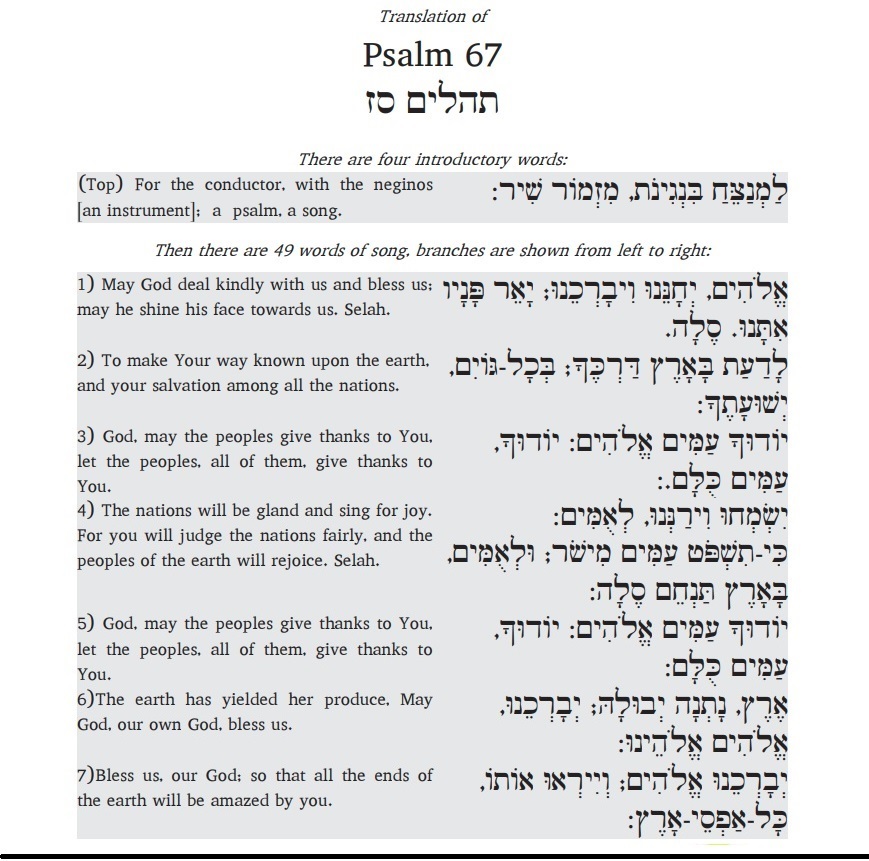
My article on the Feast of First Fruits, the Omer Count, and Shavuot - https://www.dropbox.com/s/dv38j7tx1qos4ue/d%20Lesson4..COUNTING%20THE%20DAYS...2019..107..136.pdf?dl=0
Link to the Light of Menorah podcasts, "Archaeology of Passover" - https://lightofmenorah.podbean.com/?s=archaeology
Link to pictures of the Chapel of the Ascension - https://www.biblewalks.com/AscensionChurch
Link to pictures of the Russian Church of the Ascension on the Mt. of Olives - https://www.biblewalks.com/russianascensionchurch
Link to pictures of Augusta Victoria and the German Lutheran Church of the Ascension - https://www.biblewalks.com/augustavictoria
Rev. Ferret - who is this guy? What's his background? Why should I listen to him? Check his background at this link - https://www.dropbox.com/s/ortnret3oxcicu4/BackgrndTeacher%20mar%2025%202020.pdf?dl=0

Sunday Mar 31, 2024
Sunday Mar 31, 2024
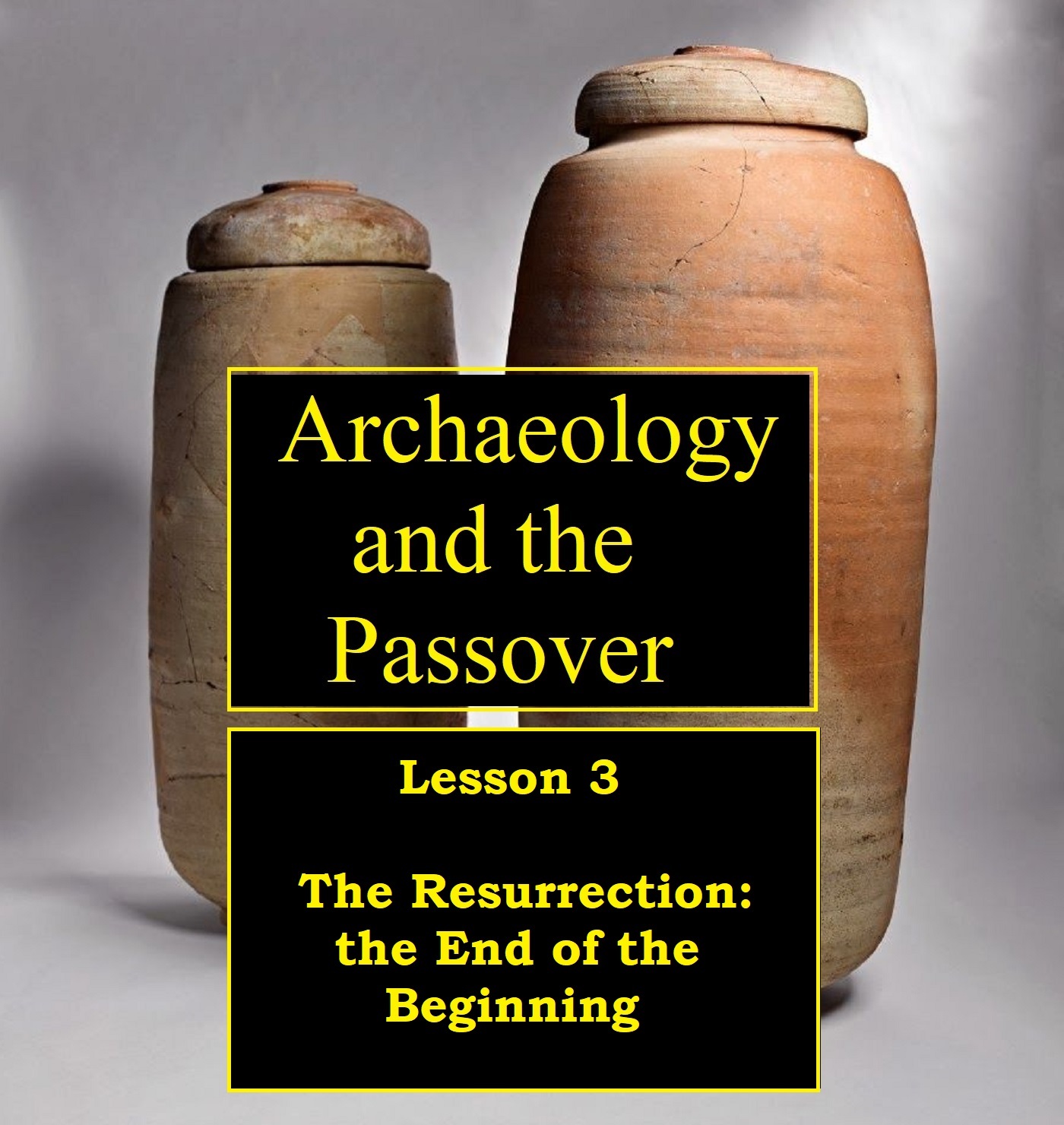
In lesson 3 we will focus on Resurrection Sunday. In session 2 we reconnected to our Jewish roots and found an amazing "picture" that relates the 1st Palm Sunday to the events of the 1st Exodus. The 1st Palm Sunday - if it was a Sunday happened in 30 A.D. - would have been Nissan 10. The day in Exod. 12:1-3 when the fathers of each household would pick the Passover lamb. We learned that the Father, our God, chose His son Jesus on the 1st Palm Sunday, on Nissan 10, as His LAMB OF GOD. What an amazing picture. And, when we go to the next Sunday, the day Jesus rose from the dead, we will see another "picture" from the foundation of Christianity, our Jewish roots, that will add to and enhance our understanding of this explosive event in the doctrine of all Christian believers, the Resurrection of Jesus the Bread of Life and the First Fruits of those who will also rise from the dead.
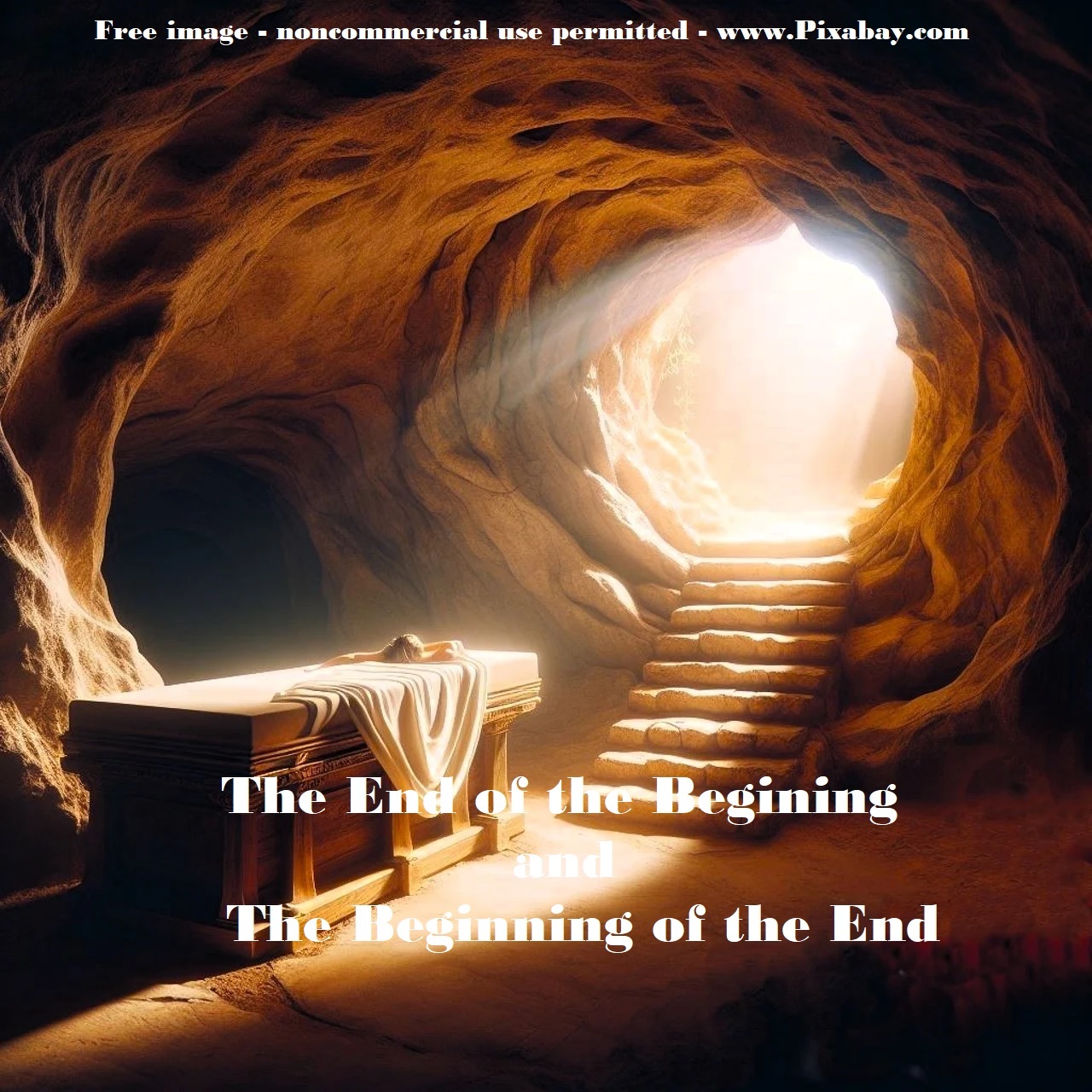
Links for this lesson ...
Rev. Ferret's video - where is Gethsemane? - filmed on location in Israel -
https://www.dropbox.com/s/mh36zp9i5ta7g74/Gat%20Sheminim%20Real%20Story%20v6.mp4?dl=0
Joel Kramer's video - the location of Jesus' trial - filmed on location in Israel -
https://www.youtube.com/watch?v=fx3qtmik_Fg&list=PL0xmKFdTYCJUBPesnN4vK9_uFyf540NsB&index=10&t=0s
Ray Vander Laan's article on the New Tomb - https://www.thattheworldmayknow.com/a-new-tomb
Pictures of tombs in Jesus' day - https://www.dropbox.com/sh/h79kcqbbeb7vf65/AADxSidFpnf0jn3aHSXfZaJpa?dl=0
Dr. Barkey - video of Dr. Barkey proving that the Garden Tomb is not the tomb of Jesus - https://www.youtube.com/watch?v=dndRgZGvNNM
Rev. Ferret's video - THE MIRROR OF PASSOVER -
Rev. Ferret - who is this guy? What's his background? Why should I listen to him? Check his background at this link - https://www.dropbox.com/s/ortnret3oxcicu4/BackgrndTeacher%20mar%2025%202020.pdf?dl=0

Friday Mar 29, 2024
Archaeology of Passover - Lesson 3 - The Ram of God and the Last Supper
Friday Mar 29, 2024
Friday Mar 29, 2024
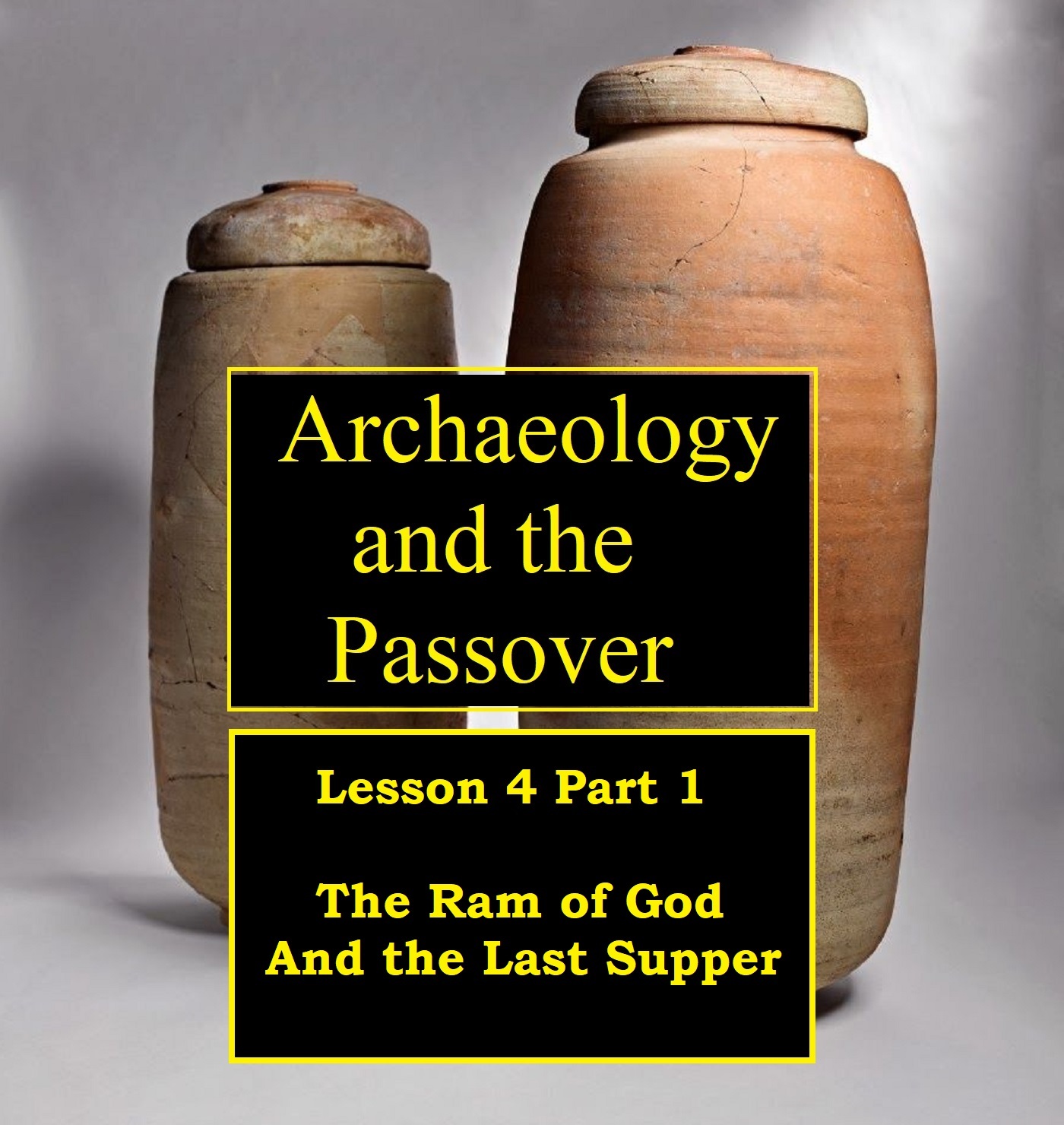 In session 4 (this session is in two parts due to the tremendous amount of material to cover) we will focus on the Last Supper. We will see how knowing ancient Egypt enhances our understanding of not only the Passover meal of Israel but how it helps us see the Last Supper, the Passover meal of the Messiah, in a deeper and more intense way.
In session 4 (this session is in two parts due to the tremendous amount of material to cover) we will focus on the Last Supper. We will see how knowing ancient Egypt enhances our understanding of not only the Passover meal of Israel but how it helps us see the Last Supper, the Passover meal of the Messiah, in a deeper and more intense way.
Another concept we will study is the Jewish Seder. What is a Seder and when did it develop? You will be amazed to see that Jesus NEVER did a Seder and, even the Jewish people prior to 70 A.D., never did a Seder. Again, we are dealing with real history and we will see that the Jewish Seder that we know today had its beginnings in Jesus' day and before. But, Jewish sources show clearly that the Seder was established after 70 A.D. as a response of the rabbis to figure out what to do now that the Temple was destroyed and they could not do the Passover meal as commanded by God in the place He commanded, in Jerusalem. After 70 A.D. Passover and the Appointed time of Unleavened Bread was not a pilgrimage event any more. Now the rabbis sad you could do it in your house anywhere to keep the feast alive. On top of that we will also see that Jesus did not do a Passover meal as commanded in Exodus 12. His meal was something unique and distinct but it was only understood in light of the Passover meal.
Here's the links for articles and a video that will enhance your studies in this 4th session.
LINK - article on the Egyptian god Amun - https://www.worldhistory.org/amun/
LINK - article on the Egyptian god Ra - https://www.arce.org/resource/ra-creator-god-ancient-egypt
LINK - article on the location of the upper room - https://www.biblicalarchaeology.org/daily/biblical-sites-places/biblical-archaeology-sites/jesus-last-supper-tomb-of-david/
LINK - article on the origins of the Seder - https://schechter.edu/the-origins-of-the-seder/
LINK - video lesson entitled "The Mirror of Passover." This takes this series and expands upon it even further. The Passover of Adonai is an amazing event that seems to provide a mirror the Lamb of God and the Passover Lamb and the new creation in Genesis and the new creation in the book of Revelation - https://youtu.be/ipaeu7AQZ8Y
Rev. Ferret - who is this guy? What's his background? Why should I listen to him? Check his background at this link - https://www.dropbox.com/s/ortnret3oxcicu4/BackgrndTeacher%20mar%2025%202020.pdf?dl=0

Tuesday Mar 26, 2024
Tuesday Mar 26, 2024
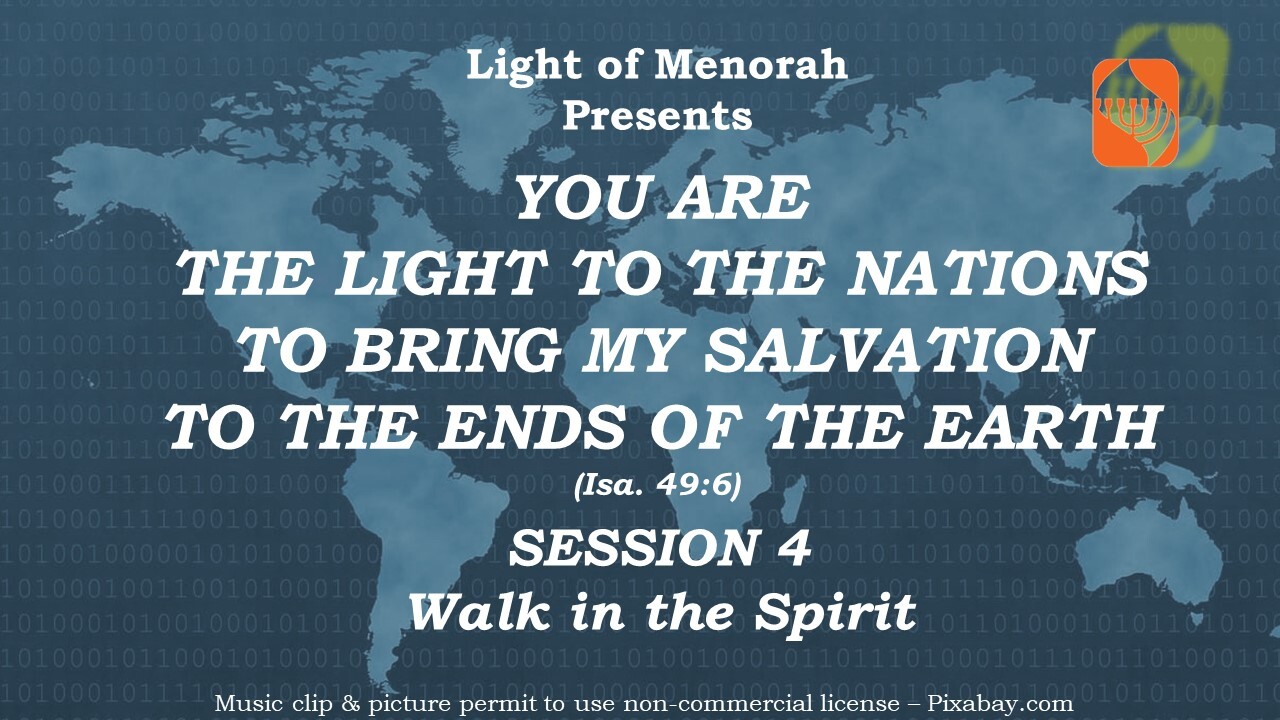
Lesson 4
Walk in the Spirit
(40 & 50 & God Dwells in Us and With Us)
This is lesson 4 in this 4 part video series. If you have not watched lesson 1 parts 1 & 2 or Lesson 2 parts 1 & 2 or Lesson 3 parts 1 & 2 we urge you to do so. This lesson depends upon the content of the previous lessons. Shown below are the links for the previous lessons for your convenience.
Lesson 1 Part 1 –
https://lightofmenorah.podbean.com/e/truth-nugget-28-lesson-1-part-1-the-gospel-whats-that/
Lesson 1 Part 2 –
Lesson 2 Part 1 -
https://lightofmenorah.podbean.com/e/truth-nugget-28-lesson-2-part-1-disciples-and-apostles/
Lesson 2 Part 2 - https://lightofmenorah.podbean.com/e/truth-nugget-28-lesson-2-part-2-disciples-and-apostles/
Lesson 3 Part 1 -
https://lightofmenorah.podbean.com/e/truth-nugget-28-lesson-3-part-1-the-ends-of-the-earth/
Lesson 3 Part 2 -
https://lightofmenorah.podbean.com/e/truth-nugget-28-lesson-3-part-2-the-ends-of-the-earth/
In part 4 we focus on the phrase “but you will receive power when the Holy Spirit has come upon you.” We are all to be disciples of Rabbi Jesus which means we want to be like Him; to live as the image of Messiah in every aspect of our lives. And, some of us might be called to go out to the "ends of the earth" and thus become disciples who are now also apostles (in Hebrew we'd be known as the "sent out ones"). It seems that Jesus is teaching us that in order to be His disciples we can not do it on our own. It takes POWER and this POWER comes through His Spirit dwelling in us.
Another part of this lesson is the amazing numbers 40 and 50. We will see how this is all connected to that memorable Pentecost Sunday probably in 30 or 33 A.D. On top of that we will see that this connects to the coming of the Lord to dwell WITH His people at Sinai, the mountain of God. All of this will enhance and enrich and expand our Biblical understanding of the Gospel, what are Disciples, Apostles, and our walk as Jesus in the Spirit.
Rev. Ferret - who is this guy? What's his background? Why should I listen to him? Check his background at this link - https://www.dropbox.com/s/ortnret3oxcicu4/BackgrndTeacher%20mar%2025%202020.pdf?dl=0

Monday Mar 25, 2024
Truth Nuggets 15 vidcast Purim - Not By Chance But By Design
Monday Mar 25, 2024
Monday Mar 25, 2024

In this vidcast (video) we focus on a small detail the Lord inserted in the book of Esther. For all my years I have never heard anyone teach on it - it was mentioned but no one took it deeper. This small detail we all have read it. But, it seems it doesn’t jog our minds to perhaps pursue what the small detail means and why it is there. But, when we do. WOW!!
So, some say God is not in the book of Esther. That’s right! There is no mention of God or of faith or religious Jewish practices. But, this is God’s inspired book. Thus, call it His TORAH תּוֹרָה which does not mean law but instruction or the Lord's teaching. What is the Lord trying to get at in the book of Esther? Some things are very very obvious. But, we miss things. Why? We are so disconnected for studying the Bible in its historical context. When we do this small detail in the book of Esther will lead us to places that will blow us away.
So, in this inspired book of the Lord, He is teaching us. He is giving us His TORAH תּוֹרָה. Could it be He is connecting us to the Gospel and the Messiah and His redemption plan? Could it be that the book of Esther is part of His design and plan but we have failed to see it since that small detail is something we’ve ignored? The answer is YES. Watch the video. All this is not my theory, opinion, or view. It is The Very Word of God and wait till you see where this takes us. Amazing.
Rev. Ferret - who is this guy? What's his background? Why should I listen to him? Check his background at this link - https://www.dropbox.com/s/ortnret3oxcicu4/BackgrndTeacher%20mar%2025%202020.pdf?dl=0

Sunday Mar 24, 2024
Archaeology and the Passover - Lesson 2 - Palm Sunday: The Palm and the Lamb
Sunday Mar 24, 2024
Sunday Mar 24, 2024
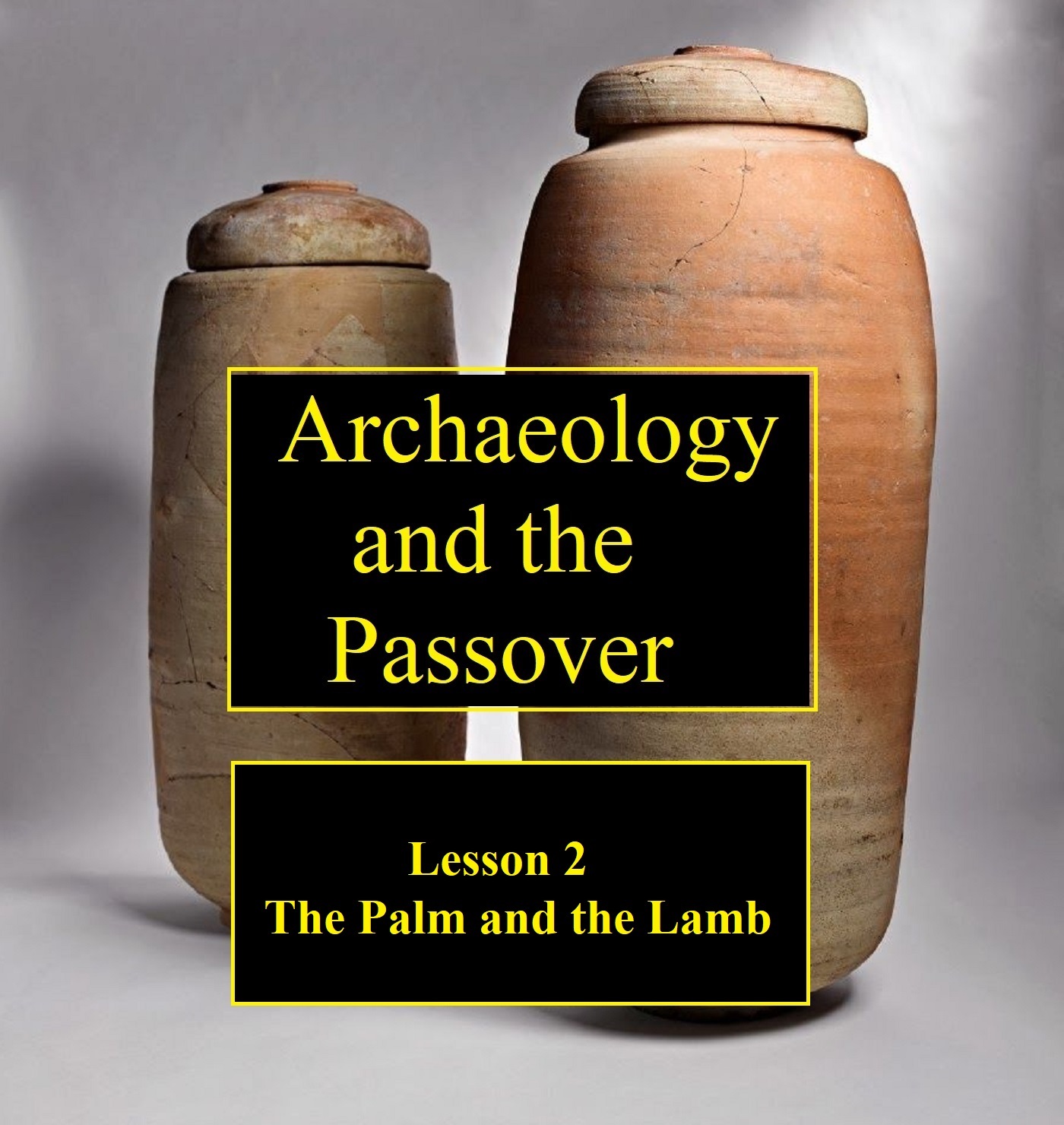 Session 2 - we continue our focus on the 1st Palm Sunday probably in 30 A.D. We ask why did the Lord pick this day to ride into Jerusalem? Was it just the day that was convenient or was it part of a plan? Is there something about this Sunday that they understood almost 2000 years ago but we don't since we are not Jewish and we did not live then. And what's the deal about the palm branches? In those days the palm branch to the Jews was not a symbol of victory like Rome or Greece - that's a pagan meaning and devout religious Jews would never use such a pagan meaning. For the Jews then it was the symbol of the land of Israel. If you waved a palm branch in Jesus' day as they did it's like us raising the American flag today like after 9/11 and shouting out, "USA, USA, USA!" Waving palm branches was a patriotic gesture in those times in Israel. So, let's delve into our continued study and walk those ancient streets and paths to try and grasp what they knew, what they understood so that the Bible's meaning for us is enhanced and our walk with Rabbi Jesus becomes more passionate and committed.
Session 2 - we continue our focus on the 1st Palm Sunday probably in 30 A.D. We ask why did the Lord pick this day to ride into Jerusalem? Was it just the day that was convenient or was it part of a plan? Is there something about this Sunday that they understood almost 2000 years ago but we don't since we are not Jewish and we did not live then. And what's the deal about the palm branches? In those days the palm branch to the Jews was not a symbol of victory like Rome or Greece - that's a pagan meaning and devout religious Jews would never use such a pagan meaning. For the Jews then it was the symbol of the land of Israel. If you waved a palm branch in Jesus' day as they did it's like us raising the American flag today like after 9/11 and shouting out, "USA, USA, USA!" Waving palm branches was a patriotic gesture in those times in Israel. So, let's delve into our continued study and walk those ancient streets and paths to try and grasp what they knew, what they understood so that the Bible's meaning for us is enhanced and our walk with Rabbi Jesus becomes more passionate and committed.
Here's links to some awesome articles that will enhance your study ...
The article from Jerusalem Perspective on Jesus' last ride into Jerusalem - https://www.jerusalemperspective.com/1402/
Rev. Ferret's graduate paper on the archaeology of the Passion of Jesus - https://www.dropbox.com/s/28fu8ay951lwy3u/NWC%20Paper%20Passion%20Week%202020%20revised.pdf?dl=0
Rev. Ferret - who is this guy? What's his background? Why should I listen to him? Check his background at this link - https://www.dropbox.com/s/ortnret3oxcicu4/BackgrndTeacher%20mar%2025%202020.pdf?dl=0

Saturday Mar 23, 2024
Saturday Mar 23, 2024
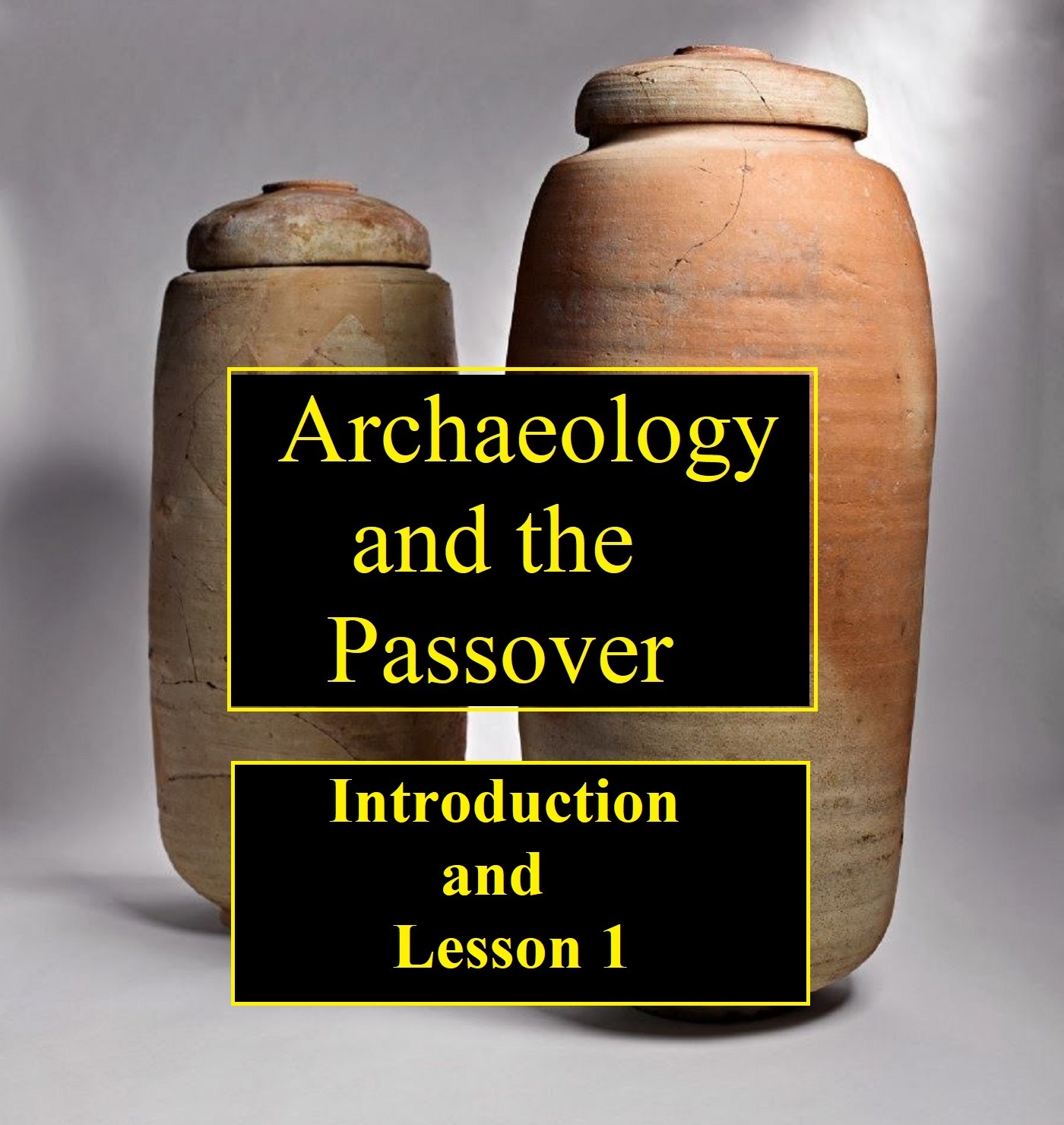
Palm Sunday is a key holy day in the church. It marks the start of Passion Week. It also is a remembrance of Jesus' "triumphal" ride into Jerusalem. But, did this happen on a Sunday? It seems from the resources we have that the earliest date of the celebration of Palm Sunday is from the 4th century. That is close to 300 some years after Jesus ascended to heaven. That is a big gap.
This session will show that there is evidence to suggest a real possibility that Jesus did ride into Jerusalem on a Sunday. If this is the case, however, putting this event back into its historical context may challenge our long held traditions. However, as we examine the archaeology, the history, and the ancient customs of those days we will find it strengthens our doctrine - it strengthens our walk of faith.
This is session 1 of a four part series on archaeology and the Passover. Watch for the other three lessons coming soon.
One of my teachers and now a friend, Dr. Carl Rasmussen, professor emeritus of Bethel University, scholar and Bible historian extraordinaire, has an awesome website called Holy Land Photos. I am linking you to one of 100's and 100's of collections he has gathered of pictures of religious and archaeological sites across the Middle East. Here is the link to the collection of pictures of the Mt. of Olives. I know you'll love and it'll add to your study in this four part series.
Link - https://holylandphotos.org/browse.asp?s=1,2,6,19,451
Who is this guy, Rev. Ferret? What's his background? Why should we take time to listen to him? Here's a link to check out his background - https://www.dropbox.com/s/ortnret3oxcicu4/BackgrndTeacher%20mar%2025%202020.pdf?dl=0
Session Two coming soon
"The Palm and the Lamb"
Why did Jesus ride in on a Sunday? What's the big deal? What does it mean for me today? Just wait!!

Monday Mar 18, 2024
Five Small Stones - Episode 17 Part 2 - Galilee - MIRACULOUS CATCH??
Monday Mar 18, 2024
Monday Mar 18, 2024
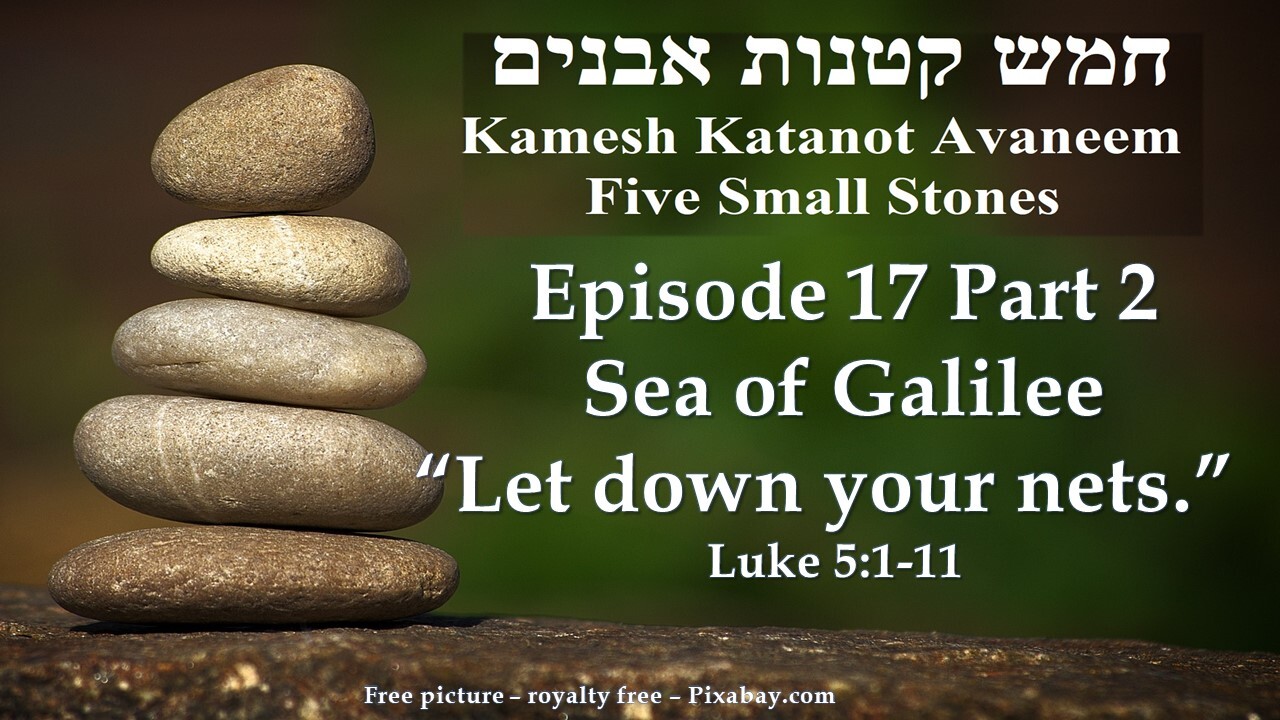
Five Small Stones - Episode 17 Part 2
(Here's the link for part 1. Please watch part 1 to get the full understanding of the amazing events in Luke 5:1-11.
LINK for part 1 - https://lightofmenorah.podbean.com/e/five-small-stones-episode-17-part-1-galilee-let-down-your-nets/ )
In part 1 we visited the Cove of the Parables. It is the likely place Jesus went out in Peter's boat and spoke to the crowds. You can see a picture below of the location of the cove to the ancient city of Capernuam.
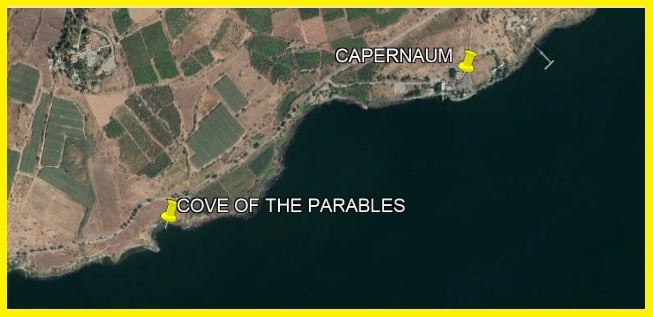
I recommend a cool video that that even adds more to our understanding of the cove of the parables. A sound experiment is actually done in the video to show that this place is a place where one can speak to many many people.
Link - https://www.youtube.com/watch?v=qR9jeFDuXOE
After Jesus spoke to the crowds we read the following ...
When He had finished speaking, He said to Simon, "Put out into the deep water and let down your nets for a catch." Simon answered and said, "Master, we worked hard all night and caught nothing, but I will do as You say and let down the nets." When they had done this, they enclosed a great quantity of fish, and their nets began to break; so they signaled to their partners in the other boat for them to come and help them. And they came and filled both of the boats, so that they began to sink. (Luk 5:4-7)
This is what many of us term the "miraculous catch." It isn't miraculous! No way.
It is beyond miraculous.
It is unexplainable and beyond imagination. So what is the real story behind all this? What is going on? What does this do to our understanding of the events and Jesus? Who is Jesus?
Come and join us as we dig deeper into the story and its historical context.
(NOTE - I mentioned a Jewish archaeologist in this video. His name is Mendel Nun. To access more of his work and studies here's the link - https://www.jerusalemperspective.com/author/mendel-nun/)
Rev. Ferret - who is this guy? What's his background? Why should I listen to him? Check his background at this link - https://www.dropbox.com/s/ortnret3oxcicu4/BackgrndTeacher%20mar%2025%202020.pdf?dl=0
